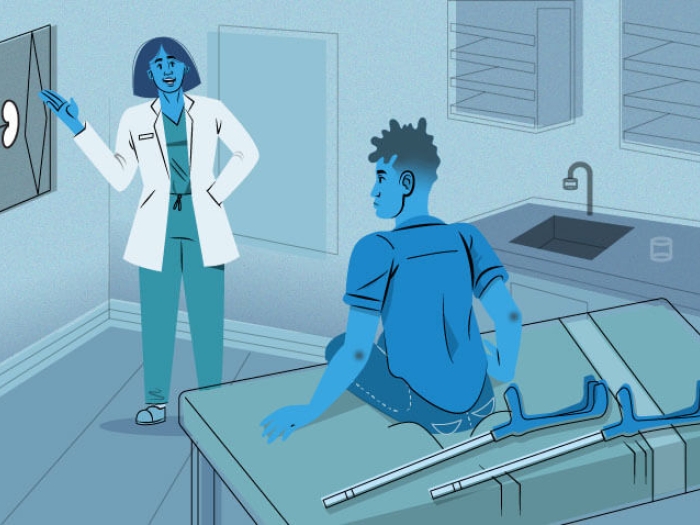New research shows how expression of certain genes might offer doctors a warning sign when a kidney transplant is poised to fail.
8:00 AM
Author |

When a patient gets a new kidney, there's no guarantee that the body will accept the foreign organ.
Even with a suitable donor, "it is very complicated and very unpredictable," says Randall Sung, M.D., surgical director of kidney and pancreas transplantation at the University of Michigan Health System.
A recipient's age, immune system and adherence to medication all play a role going forward. And about half of such transplants, regardless of circumstance, are rejected by the body within 10 years.
Which is why Sung and other doctors recently asked the question: How can signs of rejection be identified early enough before the damage is done?
Key indicators, a multi-center study found, could lie within expression of proteins crucial to the immune response.
Findings by the Scripps Research Institute published last month in the American Journal of Transplantation, attained using genetic expression profiling, which measures the simultaneous activity of thousands of genes, found surprising similarities between cases of early acute kidney rejection (that is, within a year of transplant) and chronic ones that occurred years after the fact.
At present, those two types of rejection are viewed as separate diseases.
Yet, recent biopsies of 234 kidney transplant patients (including eight treated at U-M) revealed that 80 percent of the same genes were highly expressed in both acute and chronic rejection samples.
A second game-changer in the study was the element of interstitial fibrosis and tubular atrophy (IFTA).
A type of kidney damage and scarring that can result from a past injury, IFTA in otherwise healthy patients was found to share a similar gene expression with those who experienced acute rejection. This was the case even when there were no signs of active immune injury in biopsy specimens.
IFTA has long been associated with an increased risk of transplant failure, but never thought to be a direct sign of active rejection.
That suggests both conditions occupy different parts of the arc on the same immune rejection process, says Sung, who was a site investigator on the study.
Viewed in that context, it could give doctors new clues to predict — and hopefully thwart — rejection, regardless of when the transplant took place.
"To be able to jump on an evolving [diagnosis of] rejection at its sort of basic molecular genesis, if you will, is the real long-term goal of this type of work," says Sung.
To routinely use this molecular profiling technology as a diagnostic test in your garden variety transplant center is certainly a vision that's coming closer.Randall Sung, M.D.
Pinpointing problems
The study maintains that transplant organ failure can be tied to inadequate immunosuppression.
Drugs to help the body dial back its immune system's fighting response and allow a new kidney to function are administered to new transplant patients. Acute rejections, as such, are often treated with a higher dose of medication.
The newly discovered link in immune activity between both acute and chronic rejection, then, might help treat the latter condition assumed to be untreatable using those drugs — and, ideally, curb the need for costly and often-complicated dialysis.
Now, Sung says, "you might be more inclined to treat someone for rejection even in the presence of chronic changes."
As a result, researchers on the study have called for more surveillance biopsies to keep closer tabs on post-transplant patients.
But Sung says it might be difficult to determine a proper frequency to make the procedure worthwhile — and noted that it's often difficult to get patients to come in even for the routine blood tests to measure creatinine levels.
Still, the findings show promise.
"About 10 or 15 years ago, these endeavors were felt to be fishing expeditions," Sung says. "To routinely use this molecular profiling technology as a diagnostic test in your garden variety transplant center is certainly a vision that's coming closer."

Explore a variety of health care news & stories by visiting the Health Lab home page for more articles.

Department of Communication at Michigan Medicine
Want top health & research news weekly? Sign up for Health Lab’s newsletters today!





